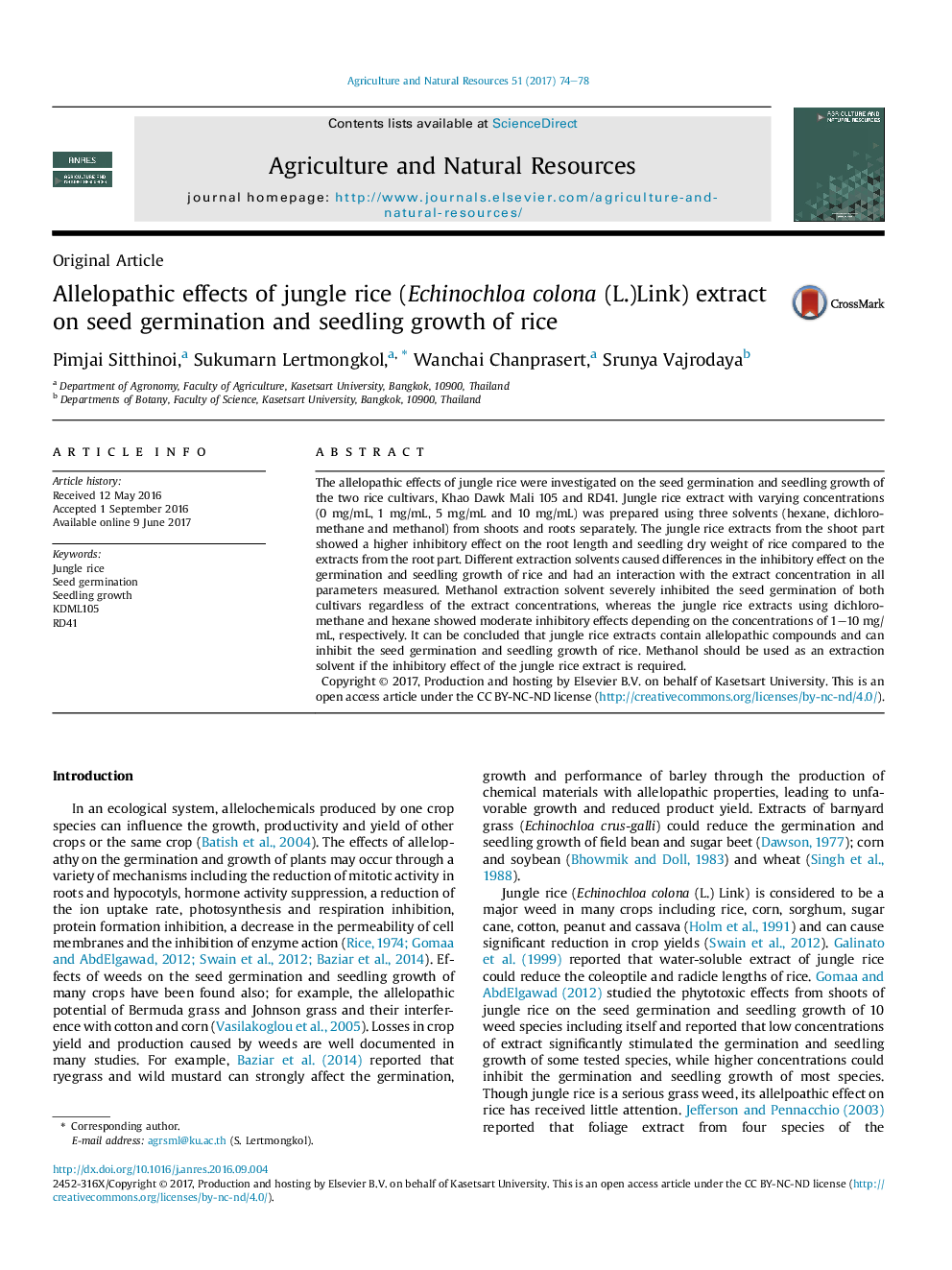| Article ID | Journal | Published Year | Pages | File Type |
|---|---|---|---|---|
| 6538093 | Agriculture and Natural Resources | 2017 | 5 Pages |
Abstract
The allelopathic effects of jungle rice were investigated on the seed germination and seedling growth of the two rice cultivars, Khao Dawk Mali 105 and RD41. Jungle rice extract with varying concentrations (0Â mg/mL, 1Â mg/mL, 5Â mg/mL and 10Â mg/mL) was prepared using three solvents (hexane, dichloromethane and methanol) from shoots and roots separately. The jungle rice extracts from the shoot part showed a higher inhibitory effect on the root length and seedling dry weight of rice compared to the extracts from the root part. Different extraction solvents caused differences in the inhibitory effect on the germination and seedling growth of rice and had an interaction with the extract concentration in all parameters measured. Methanol extraction solvent severely inhibited the seed germination of both cultivars regardless of the extract concentrations, whereas the jungle rice extracts using dichloromethane and hexane showed moderate inhibitory effects depending on the concentrations of 1-10Â mg/mL, respectively. It can be concluded that jungle rice extracts contain allelopathic compounds and can inhibit the seed germination and seedling growth of rice. Methanol should be used as an extraction solvent if the inhibitory effect of the jungle rice extract is required.
Related Topics
Life Sciences
Agricultural and Biological Sciences
Forestry
Authors
Pimjai Sitthinoi, Sukumarn Lertmongkol, Wanchai Chanprasert, Srunya Vajrodaya,
